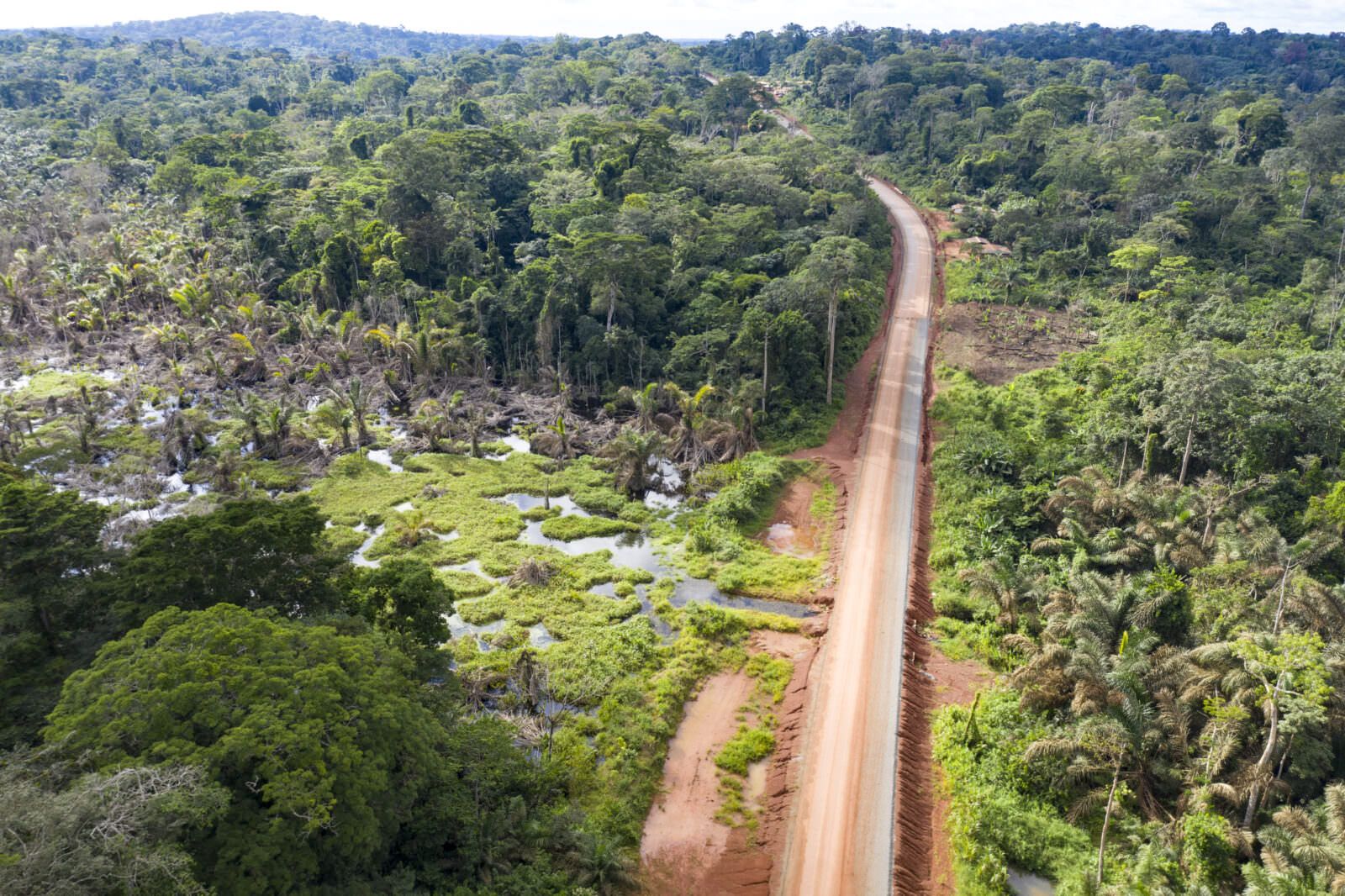Back in 2019, the Rainforest Alliance co-led the development of the Accountability Framework, in partnership with leading social and environmental organizations, including The Nature Conservancy, WWF, and the World Resources Institute. This common set of principles and definitions provides companies with a clear roadmap to achieve more responsible supply chains in two sectors that are closely linked to deforestation, ecosystem conversion, and human rights issues: agriculture and forestry.

The Rainforest Alliance has been working to drive systemic change in these very same areas for more than 30 years, both through certification and our landscape interventions. Here, Jeff Milder, the Rainforest Alliance’s director of global policy and coalitions, reflects on how the goals and mechanisms of our recently strengthened 2020 Certification Program intersects with those of the Accountability Framework—and highlights the many benefits for companies embracing both tools.
Jeff, how do the Rainforest Alliance 2020 Certification Program and the Accountability Framework complement each other?
Rainforest Alliance certification is a great way for farmers and companies to demonstrate that a particular farm or product complies with high standards of social and environmental responsibility. And, critically, certification can also demonstrate that there are mechanisms in place to drive continuous improvement at every step of the sustainability journey.
The Accountability Framework complements certification by helping companies to address the same issues at a business-wide level. Let’s put it this way—many companies have a certain amount of certified volume in their supply chains, right? But to really move the needle on urgent global challenges, such as deforestation, ecosystem conversion, and human rights abuses, companies need to address these issues across their whole business. And this should include their non-certified volumes and commodities where certification does not exist.
Are there some specific benefits you’ve seen for companies using both tools?
Absolutely. Companies need to be able to credibly explain what they’re actively doing to address deforestation, climate change, and human rights abuses. And this has to be integrated into how their whole business runs. So, even if a company is using certification, it still has broader needs, such as establishing company-wide policies, reporting on progress, and gathering impact data to back up its commitments. This is where the Accountability Framework can help them, as it lays all of this out in clear detail. Most companies also use a variety of tools to achieve their goals, and the Accountability Framework is an umbrella that helps them stitch all of that together in a coherent way. In addition to using certification, they might be using monitoring systems like Global Forest Watch, or they might participate in jurisdictional initiatives.
By following the Framework, the company can take a holistic lens to planning and implementing its responsible sourcing approach. It will then be better placed to identify specific tools, including certification, as part of the solution that contributes to that whole.
Further guidance on using Rainforest Alliance 2020 Certification and the Accountability Framework in tandem can be found here.
How did the Rainforest Alliance’s experience of developing its certification program specifically support the development of the Accountability Framework?
When you think about it, the fundamental thing that makes Rainforest Alliance certification such a compelling and effective tool is that it helps companies and consumers alike to make better choices about the crops they source or the products they buy. And by “better choices,” I mean clear and informed choices where everyone involved in the supply chain—from farmers to companies and consumers—understands exactly what it means for a product or ingredient to be produced more sustainably, and the impact that it has for people and nature.
We brought that same logic into the Accountability Framework, by developing a set of common definitions and guidance for companies to follow and apply to their management systems at a business-to-business level. Where certification goes beyond this is that it also offers the additional consumer-facing recognition at the level of specific products or product volumes. Certification and the Accountability Framework play complementary roles in that regard.
While there is a lot of joined-up thinking between certification schemes and the Accountability Framework, to what extent do you think there is a danger of perceived “initiative fatigue” among some stakeholders, and how can this be countered?
I think when we started out, there was some concern that the Accountability Framework was going to be “one more thing” that companies had to deal with or comply with. But, as it is being used to harmonize the approaches of so many companies, such as McDonald’s, and industry groups, including the Consumer Goods Forum—as well as commodity scorecard and reporting initiatives, like WWF’s palm oil scorecard or CDP Forests—it’s clear that our partners see how the Framework strengthens their initiatives, especially certification. I’d say that the Accountability Framework has helped to bring clarity to the space companies are operating in. In many cases, it is helping multi-partner, collaborative processes—such as developing industry group guidelines—get where they need to go much faster, which has huge added value.
For example, before the Accountability Framework existed, an industry group might spend a year deliberating definitions and basic principles for what their members were expected to do. Since the Framework has been published, we’ve seen a lot of different groups—such as the UK Roundtable on Sustainable Soya or the Global Platform for Sustainable Natural Rubber—realize that there are already well-accepted references for the issues they need to engage on and that they can use these as a starting point, perhaps adding a little bit more sector-relevant detail for their members. Bottom line: They don’t have to reinvent the wheel and can more quickly focus on the issues at hand.
The Accountability Framework also comes with tools for companies to directly self-assess and improve the kinds of commitments and performance measures that the market is expecting to see. I think we’ve made quite a bit of progress towards helping companies understand what they need to do and how they can get there more quickly.
If you think your company can benefit from using the Accountability Framework to help define supply chain best practices, get in touch with the Accountability Framework initiative team.
